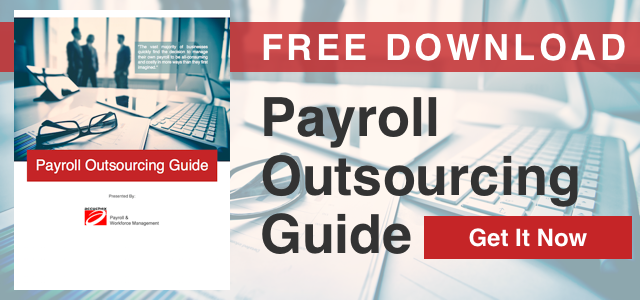Employers take note: The amount of civil penalties that can be assessed by various government agencies has been increased in order to keep up with inflation.

The Department of Labor (DOL) recently issued their interim final rules which will increase the amount of civil penalties for employers. These penalties are assessed for willful violations of the minimum wage, overtime, and child labor provisions in the Fair Labor Standards Act (FLSA), and civil penalties in the Family Medical Leave Act (FMLA).
In addition, they have established increased penalties under other laws.
How the Federal Government Keeps Up With Inflation
Congress passed the Federal Civil Penalties Inflation Adjustment Act Improvements Act of 2015 on November 2, 2015, which directed federal agencies to adjust their civil penalties for inflation annually. Agencies were also instructed to determine the last increase in civil penalties and publish interim final rules to adjust penalties for inflation from that date.
According to a DOL Fact Sheet the penalties are imposed on employers to encourage greater compliance. “These penalties, however, are less effective when they haven’t been raised for decades to keep up with inflation,” the DOL states.
As a result, Congress had passed a law in 1990 that directed federal agencies to adjust their civil monetary penalties to keep up with inflation. A civil monetary penalty was defined as a penalty for a specific amount or maximum amount set by federal law that is assessed or enforced by a federal agency.
“But a low cap on these increases together with complicated rounding rules kept many penalties from accomplishing Congress’s stated goal of keeping up with inflation over time,” the DOL adds.
In addition to these challenges, some agencies, such as the Occupational Safety and Health Administration (OSHA), were actually exempt from the 1990 law, for example, so that agency’s penalties had not increased since 1990. Congress then sought to resolve these issues with the Adjustment Act in 2015 to begin annually adjusting penalties using a more straightforward method than the 1990 law.
What Non-Compliance Will Mean for Employers Now
The DOL will increase more than 20 civil penalty amounts, effective after August 1, 2016, and for associated violations that occurred after November 2, 2015.
For example:
- Minimum wage and overtime. The civil penalty for repeated or willful violation of the minimum wage and overtime provisions in the FLSA will increase from $1,100 to $1,894 per violation.
- Child labor. The civil penalty for violations will increase from $11,000 to $12,080.
- FMLA. The civil penalty for willful violation of the requirement that employers post and keep on their premises a notice about the FMLA and the procedures that employees may use to file complaints will increase from $110 to $163.
- OSHA’s maximum penalties, which were last adjusted in 1990, will increase by 78%. In addition, going forward, the agency will adjust its penalties for inflation each year based on the Consumer Price Index.
- The top OSHA penalty for serious violations will increase from $7,000 to $12,471 and its top penalty for willful or repeated violations will rise from $70,000 to $124,709.
These are just some of the increased penalties that will be increasing. In addition, under the Employee Retirement Income Security Act, there will be several higher penalties for violations including:
- Failure to furnish documents to certain employees, former participants and beneficiaries;
- Failure to maintain records; and
- Failure (or refusal) to file an annual report on Form 5500.
For more information on these issues, see this chart: https://www.dol.gov/sites/default/files/2016-inflation-penalty-chart.pdf
Employers of Temporary Non-immigrant Workers Face Increased Penalties for Violations
The DOL also issued two interim final rules that will increase civil penalties for violations related to the employment of temporary non-immigrant workers under the H-1B and H-2B visa programs.
These include the H-1B visa and H-2B visa programs.
The H-1B visa is used by U.S. employers to hire foreign workers in areas of specialized knowledge or technical expertise, such as scientists, engineers, or computer professionals. American employers that apply for the visa must prove there are no qualified U.S. workers that could fill the positions, and must ensure that the H-1B visa holders are paid the same as their U.S. counterparts.
The following H-1B visa program penalties are increasing August 1, 2016:
- The civil penalty for violations pertaining to strikes, lockouts, displacement of U.S. workers, notification, misrepresentation of material facts, etc. is going from $1,000 to $1,782;
- The civil penalty for willful violations pertaining to wages, working conditions, misrepresentation of material facts, etc. is increasing from $5,000 to $7,251; and
- The civil penalty for each willful violation that caused the displacement of a U.S. worker is rising from $35,000 to $50,758 per violation.
The H-2B visa program allows American employers who meet specific regulatory requirements to bring foreign nationals to the U.S. to fill temporary non-agricultural jobs.
There are civil penalties on employers for violations including those related to wages, impermissible deductions, prohibited fees and expenses, and improper refusal to employ or hire U.S. workers.
Effective August 1, 2016, the related civil penalty is increasing from $10,000 to $11,940 per violation.
Civil Penalties for Immigration Violations to be Adjusted for the DHS and DOJ
The U.S. Department of Homeland Security (DHS) and the Department of Justice (DOJ) have issued interim final rules to adjust for inflation the civil penalties for violations of various provisions related to the prohibition against employing unauthorized aliens.
The new amounts only apply to civil penalties assessed after August 1, 2016, and only for violations that occurred after November 2, 2015.
Congress passed the Federal civil Penalties Inflation Adjustment Act Improvements Act in 2015 to adjust civil monetary penalties to help them maintain their deterrent effect. The new law directs agencies to adjust penalties for inflation annually using a straightforward method.
The law also requires the agencies to publish “catch up” rules by July 1, 2016 to make up for lost time since the last adjustments. These penalties were last adjusted in 2008.
The new method will adjust penalties for inflation, though the increase is capped at 150% of the existing penalty amount. For more information see the following: https://www.gpo.gov/fdsys/pkg/FR-2016-07-01/pdf/2016-15673.pdf, https://www.gpo.gov/fdsys/pkg/FR-2016-06-30/pdf/2016-15528.pdf
Staying On Top of Changes in Labor Laws and HR Compliance Issues
Employers will need to educate themselves or find professional assistance and resources that are available to them.
An updated HR and payroll compliance strategy will help your organization meet its obligations, while providing accuracy and timeliness. So take time to understand the laws, prioritize employee and manager salary changes, and maintain accurate record keeping. In this way, you will make compliance a sure thing.
Another key step in maintaining HR compliance and increasing your company's cost-effectiveness is to consider outsourcing. A professional payroll management and workforce solutions provider such as Accuchex can offer much-needed help with Human Resources needs and questions.
Accuchex is a full spectrum Payroll Management Services provider offering expertise in Time Management, Insurance and Retirement issues, as well.


